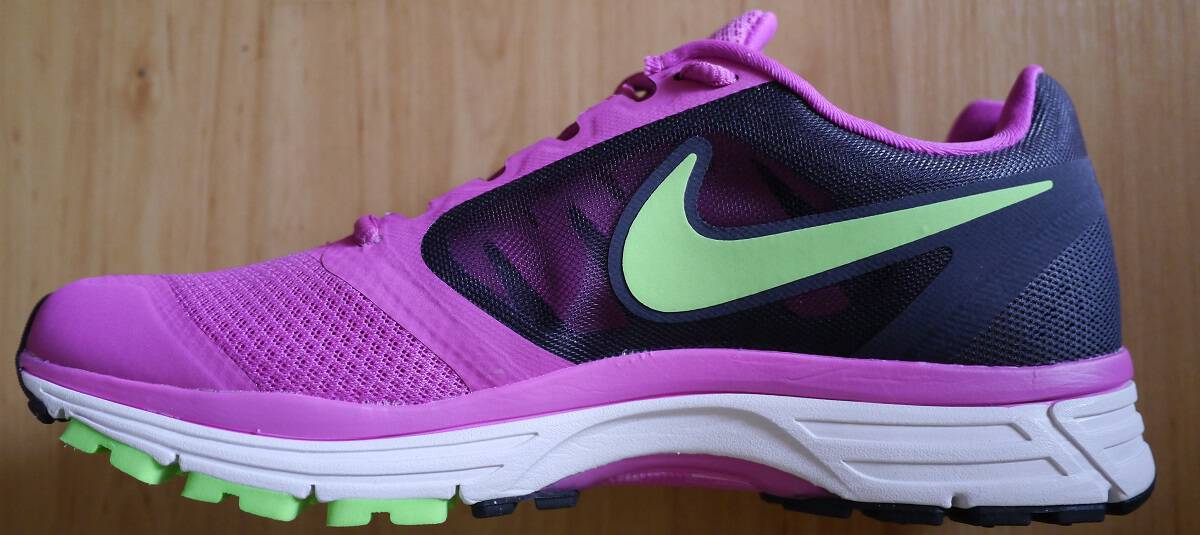How ethical are our trainers?
Last weekend I bought a new pair of trainers. They were, in fact, Nike trainers. They were, in fact again, Nike trainers made entirely of synthetic materials – which means plastic. So how does that sit with a plastic-avoiding, environmentally-conscious girl like me who champions ethical and sustainable consumption?
What’s wrong with Nike?
Nike sounds alarm bells for many people because they received a lot of criticism in the late 1990s and were subject to a massive consumer boycott. Nike were targeted because they were a best-selling brand; the reason for the boycott was Nike’s refusal to accept responsibility for the practices and treatment of workers in the factories it subcontracted to make its clothing and footwear ranges.
That was 13 years ago (the boycott ended in 2000). How does Nike perform today? They have definitely become more transparent. They have a detailed section on their website about their reporting and governance, including links to published reports, and an interactive map (last updated May 2013) which lists all the factories that make their products.
Maquila Solidarity Network, a Canadian-based workers rights organisation, published a Revealing Clothing Report in 2006 detailing labour standards reporting by retailers and brands selling clothes, and Nike scored 68%. Of the 30 companies investigated, Nike were fifth in the rankings. Lululemon, the yoga-inspired athletic brand, scored just 18%.
Still, there is a lot of room for improvement. In Ethical Consumer magazine’s latest Trainer buying guide, Nike scored 6.5 out of 20 on its ethical and environmental scale. Which sounds pretty bad, although when you you read further you find that Umbro, Adidas, Reebok, Puma and Brooks scored lower than that.
What about other brands?
Nike aren’t perfect and they still have a long way to go, but they are now committed to transparency. That is an important step. Consider though, that Nike were deliberately targeted for a boycott because they are a best-selling brand with a huge reputation. They were the scapegoat for the clothing industry. What about other, lesser known brands? Were they doing things differently? How committed to sustainability are they? How transparent are their reporting systems?
Looking at the Ethical Consumer scores, many other major high-street brands (Adidas, Reebok, Umbro, Puma and Brooks) scored no better than Nike. Oxfam Australia are putting pressure on Adidas and Puma as well as Nike to improve workers’ rights and other issues they have identified. Clearly Nike aren’t the only guilty party. Nike may have got the bad rap but they’re no worse than any of these other brands.
Are there any ethical trainer brands?
I found three interesting articles about this (two from the Guardian, one from 2008 and another from 2012, and one from the Huffingdon Post). The general consensus seems to be that whilst it’s possible to buy fashion trainers from ethical brands (Ethletic scored 17/20 on Ethical Consumer’s review but only make converse-style trainers), finding athletic sports shoes is more of a challenge.
That’s not to say that there aren’t great brands out there, but it’s going to take a fair bit of research and dedication to find them, and it’s unlikely you’ll find them in your local high-street shop.
Want to know more about ethical shopping?
I’m going to follow up this post with a guide to ethical shopping, but for now I’ll just give a few links if you’d like to read more.
The Rough Guide to Ethical Shopping is a great place to start. This book was published in 2004 so whilst some of the company information is a little dated, the principles remain the same. This is a book I read when it first came out and I learned a lot.
Ethical Consumer is a UK-based magazine available in print and online. They are a non-profit alternative consumer organisation dedicated to the promotion of universal human rights, environmental sustainability and animal welfare. Some of the information is available for free on the website or you can subscribe for £29.95 a year to access all the reports.
Labour Behind the Label is another UK organisation that run campaigns and also publish investigative reports, and works to support garment worker’s efforts worldwide to defend rights and improve wages.
Maquila Solidarity Network have a great list of resources, both Canadian and International, on their website – there’s too many to list and I haven’t checked them all out, but head over there to see if there’s anything that is relevant to you.
How do I feel about my purchase?
Do I regret my purchase? No. I haven’t bought a pair of trainers in over 15 years. I had absolutely no idea what I was looking for. I went to a shop to get some expert advice and these were the shoes that they recommended. I made a decision based on what I needed, what was available and the knowledge I had. I didn’t want to buy second hand because I didn’t want trainers that were molded to the shape of someone else’s feet. When they wear out, I will be able to make an informed decision based on what I know I need, and I can choose a pair that are made by a more sustainable company. Hopefully I can find some made with natural materials and not plastic! I certainly won’t be replacing them before they wear out, even when the colour goes out of fashion or if I see a new pair on sale for a bargain price. These guys are with me for (their) life.
Another thing I’d like to add, is that (excluding some underwear I purchased in January) this is my first brand new clothing purchase all year. We are almost into September. In 8 months, I have only purchased one new thing. I have also bought a second-hand skirt, a second-hand coat and a second-hand jumper. That is it.
I’m not perfect, and I don’t claim to be. I’m just trying to do the best I can.
[leadpages_leadbox leadbox_id=1429a0746639c5] [/leadpages_leadbox]



